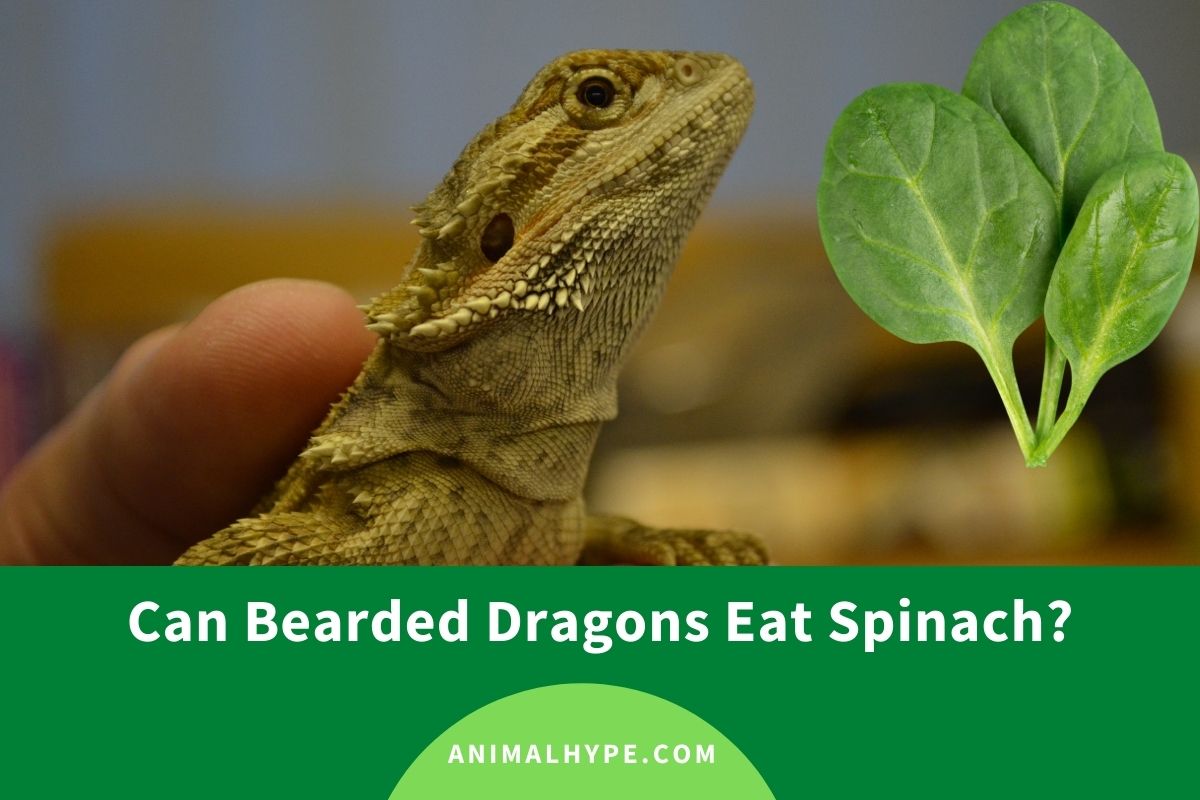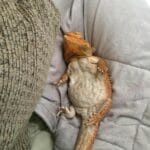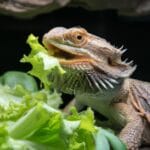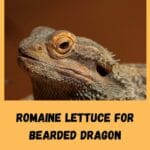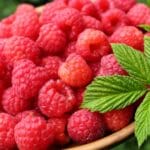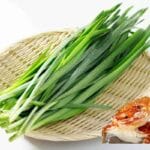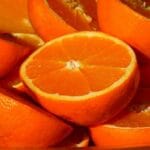So, you’re wondering if your bearded dragon can enjoy a crisp slice of apple? This guide provides a balanced perspective on apple consumption for beardies, addressing the nutritional value, potential risks, and safe practices for offering this treat.
Should Beardies Eat Apples?
While bearded dragons can technically eat apples, it’s more about should they, and how often. Apples are a bit like candy for beardies – a small amount occasionally is acceptable, but too much can cause digestive upset and other health problems.
Apple Benefits and Risks for Bearded Dragons
Let’s explore the potential advantages and disadvantages of offering apples to your scaly companion.
Pros:
- Hydration: Apples contain water, which can supplement hydration, especially during warmer months. Remember, fresh water should always be the primary source of hydration for your dragon.
- Vitamins and Fiber: Apples offer small amounts of vitamins, including Vitamin C, and fiber, which can support digestive health.
- Enrichment: A tiny piece of apple can add variety and mental stimulation to a bearded dragon’s diet.
Cons:
- High Sugar Content: Apples are relatively high in sugar, which can lead to obesity, digestive issues, and metabolic problems if consumed excessively.
- Calcium-to-Phosphorus Imbalance: Apples have a poor calcium-to-phosphorus ratio, potentially interfering with calcium absorption, which is crucial for healthy bone growth.
Apple Portioning and Preparation for Bearded Dragons
Moderation is essential when giving your beardie apples. A small slice (about 1/16th of an apple, or four to five bite-sized pieces) once a week is the maximum for an adult. Baby beardies should have even less, given their more sensitive digestive systems.
Preparing Apples for Your Dragon:
- Wash Thoroughly: Remove pesticides and residues.
- Peel and Core: Eliminate the peel (a choking hazard) and the core (which contains seeds with trace amounts of cyanide).
- Chop into Tiny Pieces: Create manageable, bite-sized pieces to prevent choking and aid digestion.
Beyond Apples: Healthier Alternatives for Your Beardie
While an occasional, tiny piece of apple is acceptable, prioritize a balanced diet rich in insect protein (especially for juveniles) and leafy greens. Consider these healthier alternatives:
| Food | Serving Frequency | Benefits | Potential Risks |
|---|---|---|---|
| Insects | Daily (juveniles), several times weekly (adults) | Essential protein | None (if gut-loaded) |
| Leafy Greens | Daily | Vitamins, minerals, fiber | None |
| Blueberries | Occasionally | Antioxidants, vitamins | Can be slightly acidic |
| Bell Peppers | Occasionally | Vitamins, hydration | None |
| Butternut Squash | Occasionally | Vitamins, minerals | None |
These alternatives provide better nutritional value than apples and should form the foundation of your bearded dragon’s diet. Are you curious about whether those vibrant red berries are safe for your scaly friend? Discover the juicy truth about whether can bearded dragons eat raspberries.
Ongoing Research and Bearded Dragon Nutrition
Our understanding of reptile nutrition is continually evolving. Current research suggests limiting apples due to their sugar content, but future studies might offer new insights. Consult a reptile veterinarian for personalized advice and stay updated on the latest nutritional recommendations.
How Much Apple Can a Bearded Dragon Eat? A Guide to Safe Apple Consumption
Adding variety to your bearded dragon’s diet is commendable, but when it comes to apples, moderation is key. Apples should be an occasional treat, not a regular meal component.
Apple Portions for Bearded Dragons
The key is moderation. A few tiny pieces of apple (no bigger than your pinky nail), offered no more than once a week, is the maximum for adult bearded dragons. Larger portions or more frequent servings can lead to digestive upset, weight gain, and other health issues.
Apples and Bearded Dragon Nutrition
Apples offer some hydration and contain vitamins like Vitamin C. However, they also contain sugar (around 10g per apple). Additionally, the calcium-to-phosphorus ratio in apples isn’t optimal, potentially hindering calcium absorption, essential for strong bones. Thinking of giving your beardie some leafy greens? Learn the important details about can bearded dragons have lettuce before you do.
Serving Apples to Your Bearded Dragon
If you offer apple, proper preparation is crucial. Wash thoroughly, remove the core and seeds (which contain trace amounts of cyanide), and chop into tiny, manageable pieces.
The Foundation of a Healthy Bearded Dragon Diet
Apples should be a “sometimes food.” Insects, especially for younger beardies, and leafy greens should form the foundation of their diet. These provide essential nutrients for growth and overall health.
Healthier Alternatives to Apples for Bearded Dragons
Many other fruits and vegetables provide similar benefits without the high sugar content of apples. Consider blueberries, bell peppers, or butternut squash, as well as leafy greens like collard greens, dandelion greens, and mustard greens. A varied and balanced diet is essential for a healthy bearded dragon.
Ongoing Research and Reptile Nutrition
Research on reptile nutrition continues to evolve. Some experts believe that a tiny piece of apple occasionally is harmless, while others suggest avoiding them altogether. Consult with a reptile veterinarian for personalized advice and stay informed about the latest research.
| Food | Serving Frequency | Notes |
|---|---|---|
| Insects | Daily (young), several times a week (adults) | Staple food, provides essential protein and nutrients. Vary the types of insects offered. |
| Leafy Greens | Daily | Staple food, provides essential vitamins and minerals. Offer a variety of greens. |
| Apples | Once a week max | Occasional treat only, in very small portions. Remove core and seeds, chop finely. |
| Other Fruits | Sparingly | Offer a variety in moderation. Focus on lower-sugar options. |
| Vegetables | Regularly | Important part of a balanced diet. Offer a variety, avoiding those high in oxalates. |
By understanding your bearded dragon’s nutritional needs and making informed choices, you can contribute to their long-term health and happiness.
What Fruit is Toxic to Bearded Dragons? A Guide to Safe Fruit Choices
Understanding which fruits are toxic to bearded dragons is critical for their well-being.
Toxic Fruits for Bearded Dragons: A Definitive List
Some fruits are dangerous for bearded dragons, including:
- Avocados: Contain persin, a toxin harmful to beardies.
- Onions, Garlic, Chives: Contain compounds that can damage red blood cells.
- Citrus fruits (lemons, limes, oranges, grapefruits): Can disrupt calcium absorption due to their high acidity, and can also irritate the digestive system of bearded dragons.
While apples themselves aren’t toxic, the peel can be a choking hazard and may contain pesticide residue. Always peel and chop apples into tiny pieces. Hop on over to this helpful guide if you’re wondering can rabbits eat brussel sprouts.
Safe Fruits for Bearded Dragons (in Moderation)
Even safe fruits should be given in moderation to avoid excessive sugar intake. Examples include:
- Peeled and cubed apples
- Peaches (small amounts)
- Strawberries
- Apricots (very small bits)
- Blueberries/Blackberries
- Banana (very rarely, due to high phosphorus)
The Importance of a Balanced Diet for Bearded Dragons
Fruits should be occasional treats, not staples. Prioritize insects and leafy greens for essential nutrients.
Baby vs. Adult Bearded Dragon Diets
Baby bearded dragons need a high-protein, high-fat diet primarily consisting of insects. Adults can handle more variety, including a slightly higher percentage of fruits and vegetables.
Safe Fruit Serving Guide for Bearded Dragons
| Fruit | Serving Size | Frequency | Preparation |
|---|---|---|---|
| Apple (peeled) | A few small, bite-sized pieces | Once a week at most | Wash thoroughly, peel, remove core, seeds, and stem, finely chop |
| Peaches (peeled) | A small amount | Occasionally | Wash, peel, remove pit, finely chop |
| Strawberries | 1-2 small berries | Occasionally | Wash, remove stem, cut in half or quarters if large |
| Apricots (peeled) | A couple of very small bits | Rarely | Wash, peel, remove pit, finely chop |
| Blueberries/Blackberries | 1-2 small berries | Occasionally | Wash thoroughly |
| Banana | A very thin, small slice | Very rarely | Peel, slice thinly |
Remember, every bearded dragon is different. Consult a reptile veterinarian for personalized advice and stay informed about ongoing research on reptile nutrition.
What Not to Feed a Bearded Dragon: A Comprehensive Guide
Providing proper care for your bearded dragon involves understanding their specific dietary needs and avoiding harmful foods.
Toxic Foods for Bearded Dragons: A Must-Avoid List
Some foods are toxic and can cause severe health problems or even death:
- Allium Family (Onions, Garlic, Chives, Leeks): These contain compounds that damage red blood cells, potentially causing anemia.
- Mushrooms: High phosphorus content interferes with calcium absorption, and acidity can cause digestive upset.
- Rhubarb: Contains oxalic acid, which can cause kidney damage and be fatal.
- Avocado contains Persin, a fungicidal toxin that can be very dangerous for Bearded Dragons. Ingestion of avocado can cause vomiting, diarrhea, lethargy, respiratory distress, and fluid accumulation around the heart (pericardial effusion), which can be deadly.
- Fireflies and other bioluminescent insects: These insects contain toxins which are harmful to reptiles.
Apples and Bearded Dragons: A Treat, Not a Staple
Apples can be given as an extremely rare treat, but not regularly. They contain sugar, which can cause digestive problems and other health issues if consumed excessively. A tiny piece once a week (or less) is the maximum for adults, even less for babies.
Preparing Apples for Bearded Dragons
If offering apple, wash it thoroughly, peel the skin (choking hazard and potential pesticide residue), remove the core and seeds, and chop into very small pieces.
Age-Specific Diets for Bearded Dragons
- Juveniles: Need a high-protein, high-fat diet (mostly insects) for growth.
- Adults: Can tolerate a wider variety, but insects and leafy greens remain essential.
Healthier Alternatives to Apples
Prioritize leafy greens (collard greens, kale) and vegetables (bell peppers, butternut squash), along with appropriate insects.
The Importance of Balanced Nutrition and Veterinary Guidance
Provide a balanced diet, appropriate portions, and careful food preparation. Consult a reptile veterinarian for personalized guidance if any questions or concerns arise. Remember, ongoing research continues to refine our understanding of reptile nutrition, so staying informed is key.
- Who Owns Mercedes Cars? 2025 Update: Unveiling the Shareholders - May 6, 2025
- UAE Federal National Council: Evolution of Participation - May 6, 2025
- Trump’s 2025 Portrait: Unveiled, Analyzed - May 6, 2025
